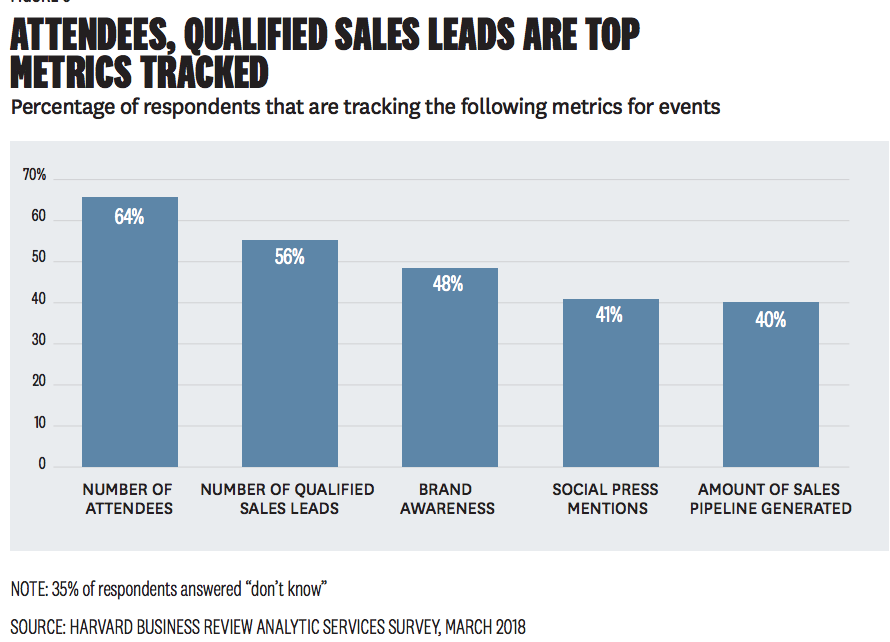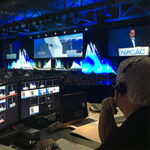“The events industry is undergoing a full-on renaissance,” writes Ben Hindman in the recently released Harvard Business Review Research Report, “The Event Marketing Evolution.” Hindman — the CEO and cofounder of event-tech company Splash, which sponsored the HBR report — is referring to events that are hosted or sponsored by corporations, and as the report’s results show, they play an increasingly important role in companies’ marketing strategies.
A total of 739 respondents, mostly managers from the tech, manufacturing, and financial services sectors, participated in the study. Among the findings:
- More than half said that event marketing drives more business value than other marketing channels.
- The most popular event type hosted or sponsored by respondents are one-day conferences or seminars, followed by product trainings.
- Fifty-four percent have boosted their event activity over the past three years and 40 percent plan to spend more on hosting events in the year ahead.
- B2B companies spend more on their events than B2C companies, dedicating 29 percent of their marketing budgets to events vs. 19 percent by B2C companies.
 Perhaps the biggest takeaway is that despite their enthusiasm for events, companies struggle with quantifying the benefits of event marketing. “Marketers are desperate to show data that demonstrates their effectiveness to the CEO and the CFO,” said Ed Keller, chief marketing officer with global management consulting firm Navigant. “I can demonstrate the ROI on a dollar spent on digital marketing or email marketing in a way that I can’t with event marketing.” In fact, more than half said they can’t track ROI and nearly a quarter said they don’t know if they are able to. The top metrics captured by respondents who do track ROI are number of attendees and number of qualified sales leads. Other metrics include brand awareness and social press mentions.
Perhaps the biggest takeaway is that despite their enthusiasm for events, companies struggle with quantifying the benefits of event marketing. “Marketers are desperate to show data that demonstrates their effectiveness to the CEO and the CFO,” said Ed Keller, chief marketing officer with global management consulting firm Navigant. “I can demonstrate the ROI on a dollar spent on digital marketing or email marketing in a way that I can’t with event marketing.” In fact, more than half said they can’t track ROI and nearly a quarter said they don’t know if they are able to. The top metrics captured by respondents who do track ROI are number of attendees and number of qualified sales leads. Other metrics include brand awareness and social press mentions.
The report concludes with several suggested event marketing best practices, drawn from in-depth interviews with event practitioners. They include integrating event technology into the company’s information systems to enable ROI measurement, realtime action, and cross-department collaboration; and capturing high-quality data from every touchpoint to offer up insights about attendee preferences (as one might expect from a report sponsored by an event-tech company). In addition, it’s recommended that companies host more events than sponsor them, and if they do sponsor events, to make an effort to connect with attendees beyond the booth, such as planning dinners and receptions.
Julie Hogan, global face-to-face marketing director, Facebook | Instagram, is one of the practitioners sold on the value of events in the marketing mix — and on the need to quantify the F2F benefits. “The face-to-face interactions that take place at events are incredibly powerful,” she said. “And coming up with ways to measure the return on those interactions, and our investments in those events, is really incredible.”




